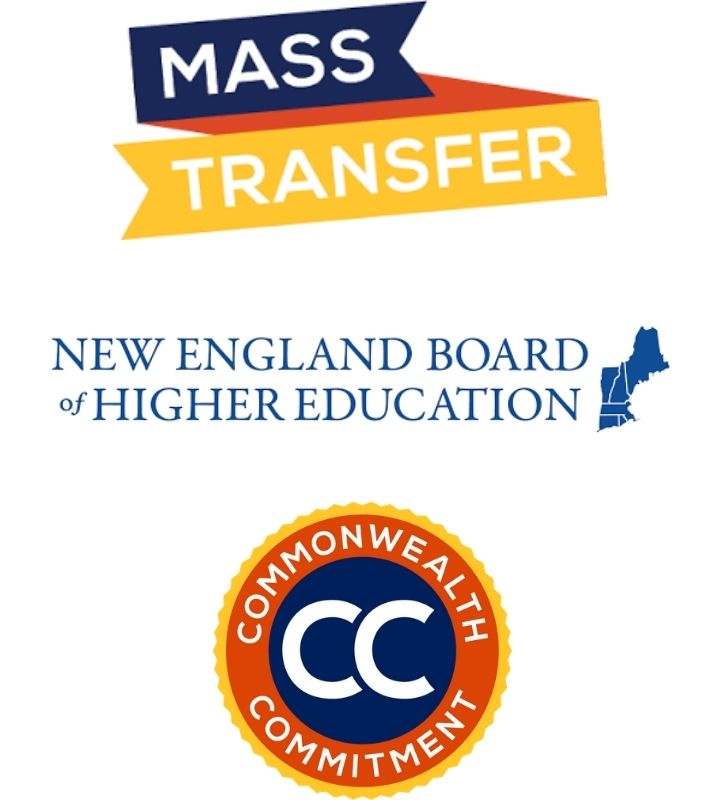Supporting Transfer Students
>> Back to the main Resource Hub page
Beginning at a public community college and transferring to either a public or private four-year institution can be an effective way to save and reduce student loan debt. Depending on students’ needs and goals, transferring also goes both ways between these institutions. Students who are transferring or planning to transfer may benefit from support as they navigate this process. This page includes common messages and helpful resources related to transferring. Please see Resources and Common Monthly Messages on the Resource Hub main page for more comprehensive information.
Quick Links
Public System Benefits
- The Massachusetts Department of Higher Education’s MassTransfer program and the Commonwealth Commitment offer significant savings, simplify and streamline the process of transferring within the public system.
- There are many MassTransfer pathways to consider that have different requirements and corresponding benefits.
- The Commonwealth Commitment offers the most significant benefits and savings. Students at community colleges must maintain full-time, continuous enrollment and a 3.0 GPA, but will be able to more quickly, easily, and affordably transfer to a public bachelor’s degree granting university. Sign up early.
- The MassTransfer pathways also include Reverse Transfer, wherein students who have already transferred to a four-year institution may apply credits earned toward completing their associate’s degree at their initial community college.
- Students may also want to explore programs like MassTeach, and similar initiatives in the areas of nursing and other fields.
Other Options and Articulation Agreements
- Many community colleges also have articulation agreements with private bachelor’s degree granting institutions.
- Articulation agreements make the transferring process easier, more seamless, and usually more affordable for students. They often entail things such as guaranteed admission (when students meet certain standards), acceptance of credits, and waived essays and fees.
- Students should work with their college academic advisors to understand what their options are and to plan. Most colleges have specific transfer counselors that are experts on the transfer process.
Start Planning Early and Note Deadlines
- For some programs, the greatest benefits are gained when students engage in programs and pathways early. If possible, include discussions about transferring in early planning with students. If students begin at a community college, explore their career and degree goals, and potential pathways to achieving those goals.


